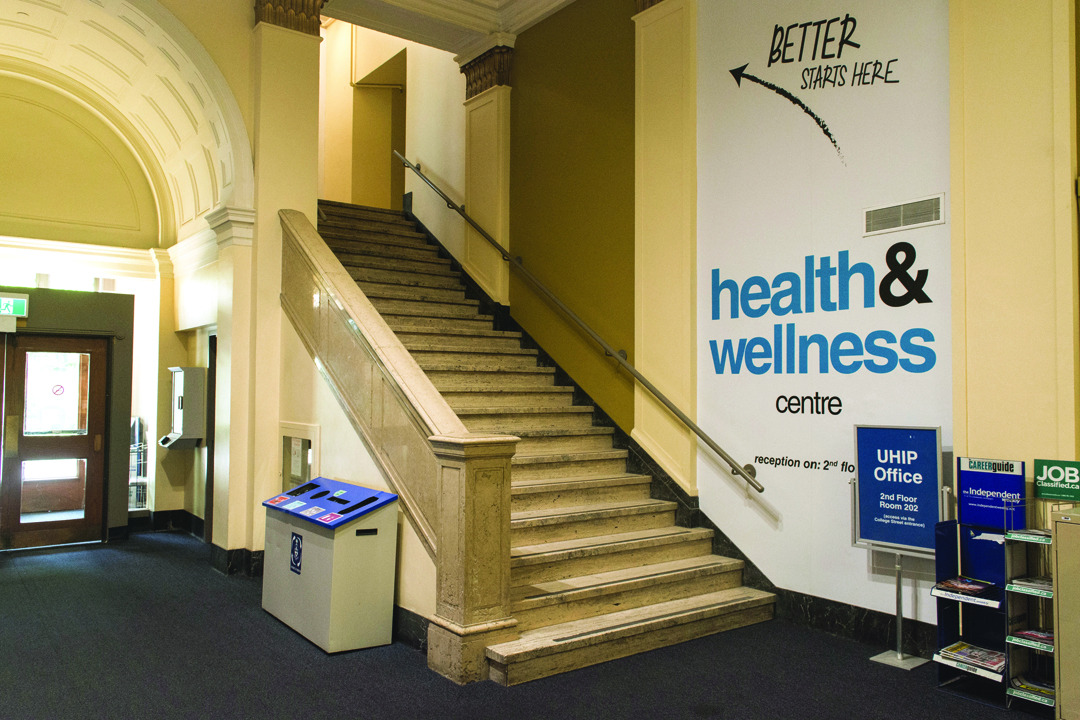Transitioning from high school to university can be a total nightmare, and without the necessary supports in place, it can be difficult to succeed. U of T offers a variety of options for students in need of accommodation, and I would highly suggest you take advantage of them.
Accessibility services:
Available on all three campuses, this branch of the university administration deals with accommodating students in an academic capacity. A visit to their office with some medical documentation is all you need to get started. Once registered, they offer many services and resources:
Test and exam accommodations:
Extra writing time, timed breaks of up to one hour, private writing spaces, and computers are all available for those who need them.
Peer note-taking: Notes taken by volunteers are accessible on a private database. You can also schedule appointments with learning strategists to get help with learning disabilities and writing issues. There are tutoring resources for specific subjects and areas of study.
Funding: You can access specific financial resources related to disabilities and your studies, and you have the option of taking a reduced course load and paying for tuition on a per-course basis while maintaining full-time student status.
Letters of Accommodation:
Based on your needs, you may receive an official letter stating your registered accommodations, which can include due dates extensions, excused absences, and accessible lecture halls. Your disability counsellors can facilitate discussions with the Health and Wellness Centre, your registrar, and professors.
Mental wellness:
The Health and Wellness Centre at UTSG, the Health and Counselling Centre at UTM, and the Health and Wellness Centre at UTSC are great resources and are free for all registered students. However, it is an overloaded system with a long wait time, so start early and use it to your advantage for every year you study. Here are some of the services they offer:
Assault counselling: Aid for students who have experienced physical assault, sexual violence, and harassment is provided by healthcare professionals with specialized trauma training.
Psychotherapy and pharmacotherapy: For students struggling with depression, anxiety, relationship and family issues, mental health issues, as well as sexual orientation and gender identity.
Embedded counsellors: Counsellors are available at designated sites around campus, including some facilities and colleges at UTSG, all of which have shorter wait times.
Group therapy: Mindfulness-based Cognitive Behavioral Therapy for Anxiety, Dialectical Behavioral Therapy for Mood and Anxiety, and Bounce-back Resilience Therapy are available for students.
WellTrack: Available at UTSC, WellTrack is an online self-help tool for students struggling with anxiety, depression, or high levels of stress.
Other tips:
It’s easy to list all the resources we can access, but what’s really important is knowing how to properly access all of them.
Come prepared: Bring all medical documents, IDs, and a printed version of any relevant paperwork.
Get in contact with the administration: If you have any confusion about how to access these resources, call or email your registrar or set up an appointment with a Wellness Administrator. Call your campus accessibility services office or the Health and Wellness offices and ask the receptionists about your next steps.
Express your needs: Be polite, but don’t be shy. Let people know what you need and demand the resources that will help you succeed .
